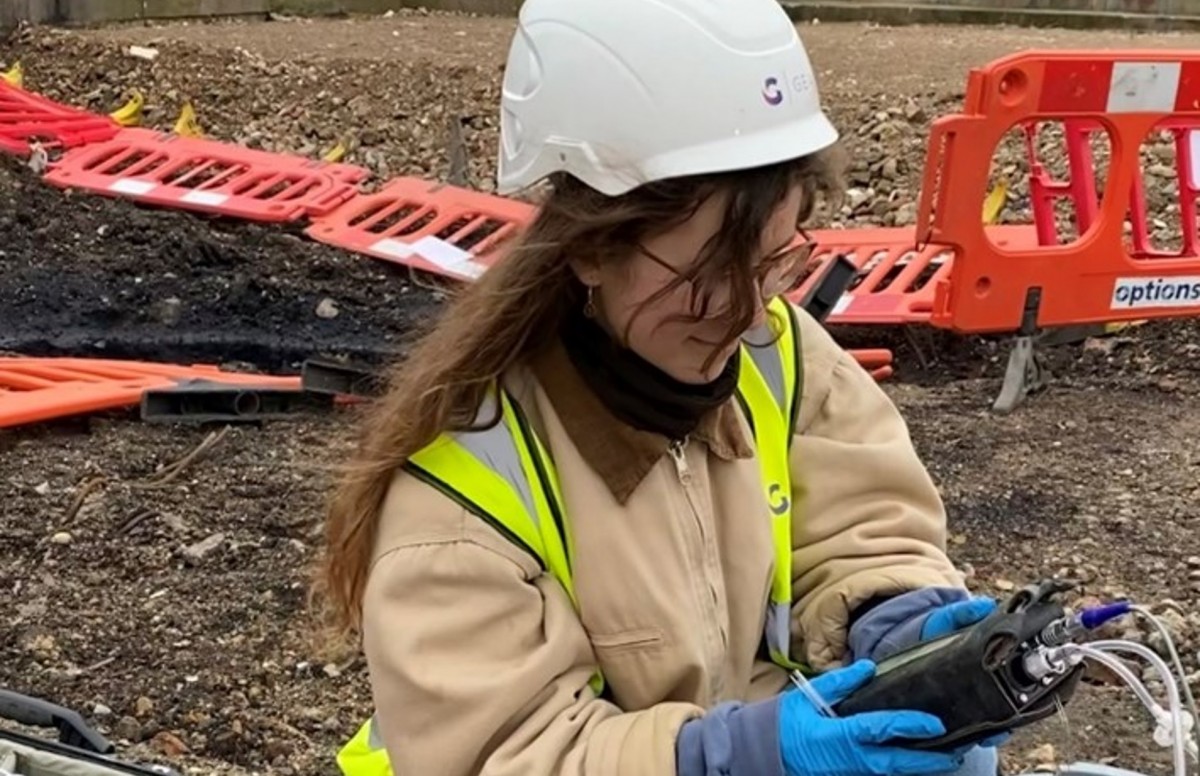Unknown Facts About Geotheta
Unknown Facts About Geotheta
Blog Article
See This Report about Geotheta
Table of ContentsGeotheta Things To Know Before You BuySome Known Factual Statements About Geotheta The Only Guide for Geotheta4 Easy Facts About Geotheta ShownThe Only Guide to Geotheta

They carry out website examinations, accumulate samples, execute laboratory examinations, and analyze data to examine the suitability of the ground for construction jobs - Geotechnical Engineers. Based on their findings, geotechnical designers offer recommendations for foundation style, incline stability, maintaining structures, and mitigation of geotechnical dangers. They team up with various other professionals, such as architects, structural engineers, and building and construction groups, to ensure that geotechnical considerations are integrated right into the general job style and implementation
By evaluating the actions and properties of dirt and rock, they can determine possible geotechnical risks such as landslides, soil negotiation, or slope instability. Their competence helps stop failings or mishaps that might threaten lives and home. Below are some detailed obligations and responsibilities of a geotechnical designer: Website Investigation: Geotechnical engineers conduct site investigations to collect data on subsurface problems.
They translate the information to understand the buildings and actions of the dirt and rock, including their toughness, leaks in the structure, compaction qualities, and groundwater conditions. Geotechnical Analysis and Style: Geotechnical engineers evaluate the information accumulated throughout website examinations to evaluate the stability and viability of the site for building projects. They execute geotechnical estimations and modeling to examine variables such as birthing capacity, settlement, incline security, lateral planet stress, and groundwater flow.
Get This Report about Geotheta
Structure Style: Geotechnical engineers play a critical role in making structures that can safely support the designated structure. They evaluate the soil problems and tons needs to determine the appropriate foundation kind, such as shallow foundations (e.g., footings), deep structures (e.g (https://www.storeboard.com/geotheta)., heaps), or specialized strategies like soil improvement. They consider aspects such as settlement limitations, bearing ability, and soil-structure interaction to develop optimum foundation layouts
They evaluate building and construction plans, display site tasks, and carry out field evaluations to verify that the layout recommendations are adhered to. If unexpected geotechnical issues occur, they examine the circumstance and provide recommendations for removal or changes to the design. Threat Assessment and Mitigation: Geotechnical designers evaluate geotechnical hazards and dangers connected with the project site, such as landslides, liquefaction, or dirt disintegration.

Partnership and Communication: Geotechnical engineers function very closely with other specialists entailed in a project, such as designers, architectural engineers, and building and construction teams. Efficient interaction and collaboration are necessary to incorporate geotechnical factors to consider into the general project style and building procedure. Geotechnical engineers offer technological experience, response questions, and guarantee that geotechnical needs are met.
Geotheta Things To Know Before You Buy
Below are some kinds of geotechnical engineers: Foundation Engineer: Structure designers specialize in creating and assessing structures for frameworks. They analyze the dirt problems, tons demands, and site attributes to figure out one of the most ideal structure kind and layout, such as superficial structures, deep structures, or specialized strategies like heap structures.
They evaluate the factors affecting incline security, such as soil residential or commercial properties, groundwater problems, and slope geometry, and develop methods to stop incline failings and alleviate risks. Earthquake Engineer: Earthquake designers concentrate on assessing and developing structures to withstand seismic forces. They assess the seismic hazard of a website, examine soil liquefaction potential, and develop seismic design standards to make certain the safety and security and strength of structures throughout earthquakes.
They execute field testing, collect examples, and examine the collected data to characterize the soil residential properties, geologic formations, and groundwater problems at a site. Geotechnical Instrumentation Engineer: Geotechnical instrumentation designers concentrate on monitoring and determining the behavior of dirt, rock, and structures. They mount and preserve instrumentation systems that monitor variables such as dirt negotiation, groundwater degrees, incline motions, and architectural displacements to examine performance and supply early warnings of possible problems.
Geotheta - Questions
They carry out examinations such as triaxial tests, combination examinations, straight shear tests, and leaks in the structure examinations to collect information for geotechnical evaluation and layout. Geosynthetics Designer: Geosynthetics designers specialize in the style and application of geosynthetic products, such as geotextiles, geogrids, and geomembranes. They use these products to boost soil stability, strengthen inclines, supply water drainage remedies, and control erosion.
They tend to be investigatory people, which suggests they're intellectual, introspective, and curious. They are curious, methodical, rational, logical, and sensible. Some of them are additionally social, meaning they're kind, charitable, cooperative, patient, caring, useful, compassionate, tactful, and pleasant - Consulting Engineers.
In the office environment, geotechnical designers utilize specialized software devices to do computations, create styles, and assess information. They prepare reports, evaluation project specs, communicate with clients and staff member, and coordinate job activities. The workplace setting provides a helpful setting for research, evaluation, and partnership with other specialists associated with the project.
A Biased View of Geotheta
They often check out task sites to Our site carry out site investigations, analyze geotechnical conditions, and collect information for evaluation. These sees involve taking a trip to various places, occasionally in remote or challenging surfaces. Geotechnical engineers might perform soil tasting, conduct examinations, and display construction activities to make sure that the geotechnical elements of the job are being executed properly.
Geotechnical designers additionally function in specialized geotechnical research laboratories. Geotechnical research laboratory designers function thoroughly in these settings, dealing with testing equipment, operating instruments, and tape-recording data.
Report this page